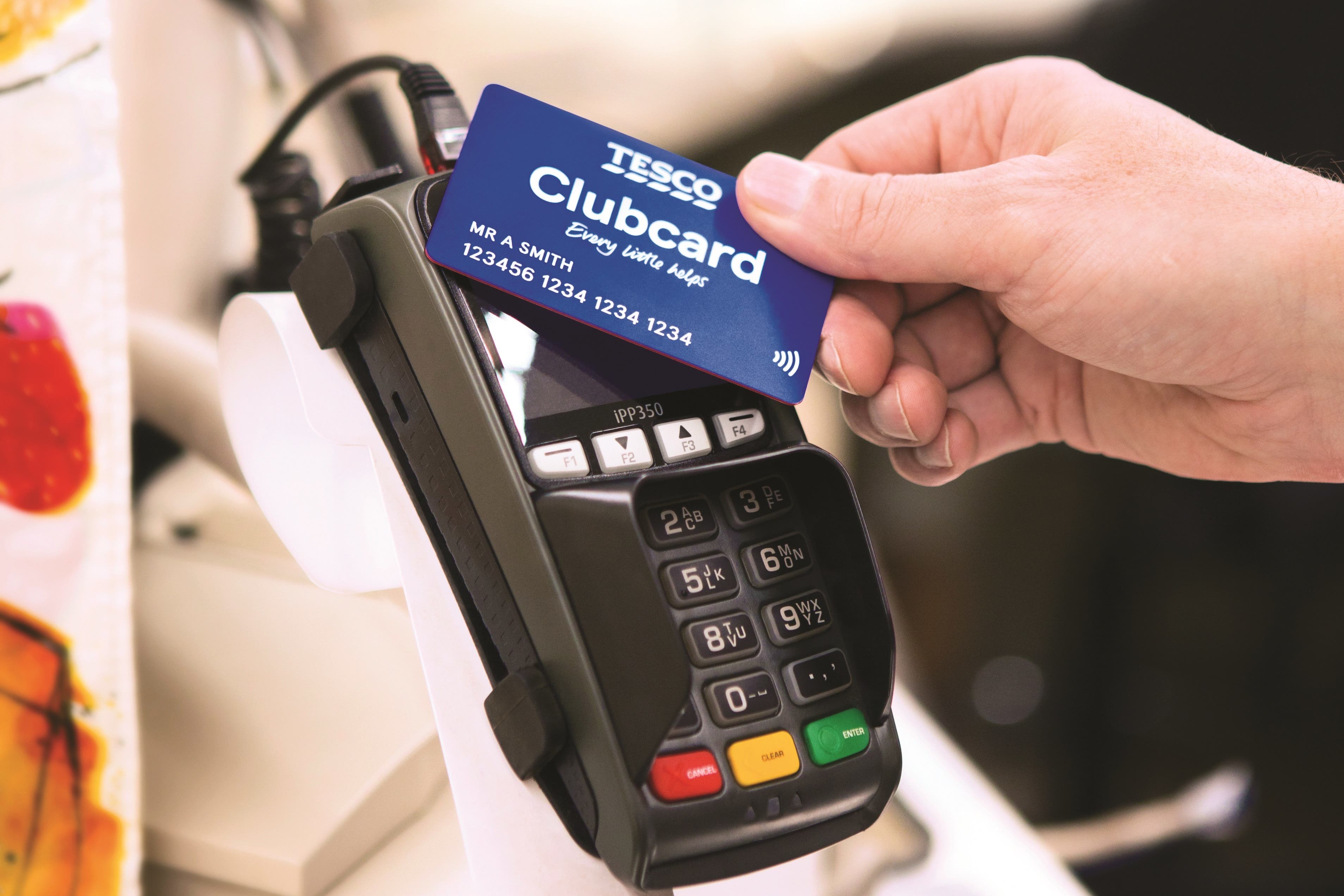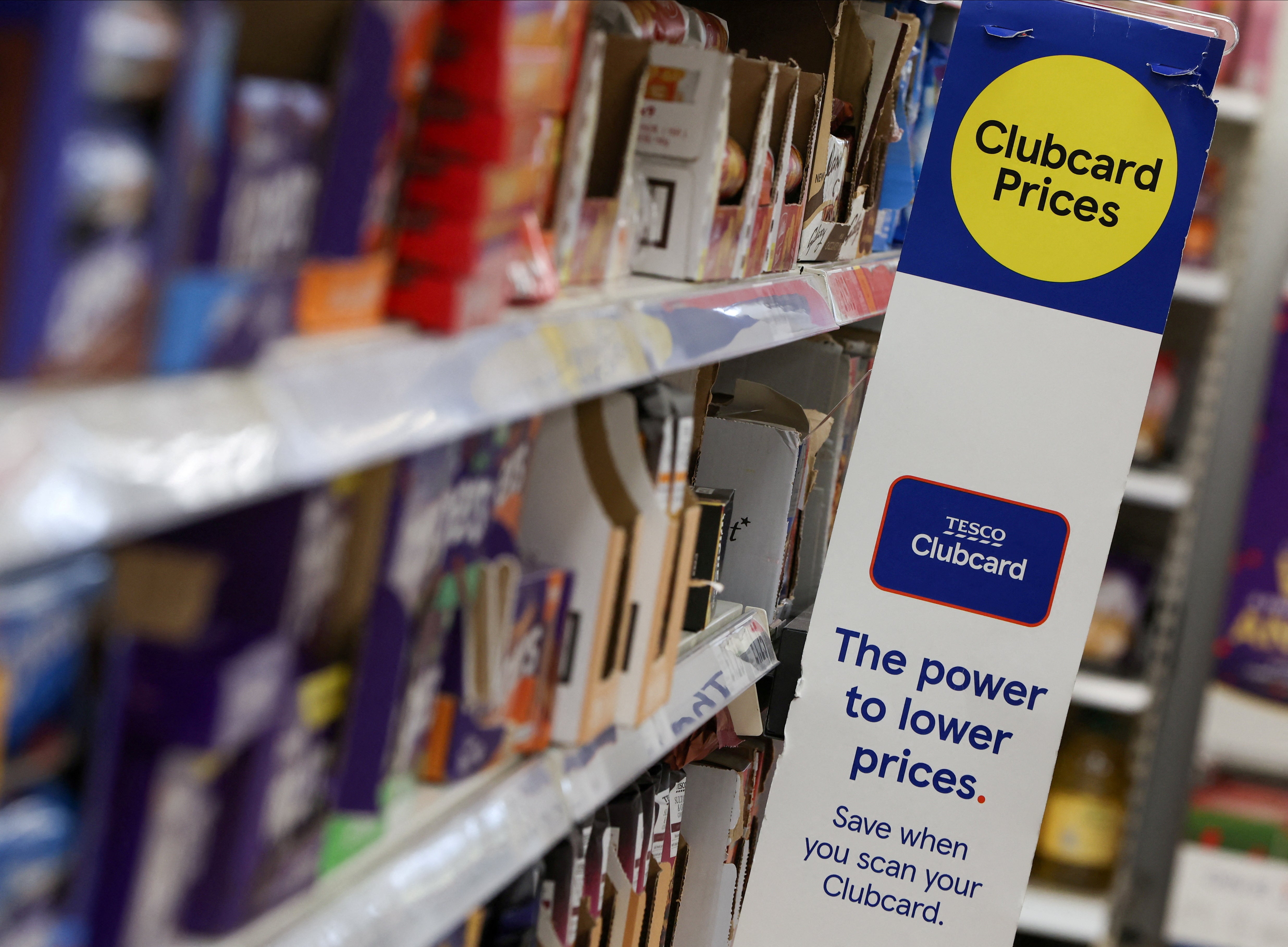The Independent's journalism is supported by our readers. When you purchase through links on our site, we may earn commission.
Join our club(card): How the cult of the supermarket loyalty card robbed us of normal prices
As Tesco is forced to overhaul its Clubcard price displays over accusations that customers can’t spot the best deals, Helen Coffey questions why loyalty schemes have gone from ‘nice-to-haves’ to practically mandatory


It was Groucho Marx who famously said he wouldn’t want to be a member of any club that would have him as a member. The same theme was picked up by Woody Allen in the opening monologue of Annie Hall. Clearly, neither of them had ever tried shopping in Tesco without a Clubcard.
This week, the supermarket’s loyalty scheme has come under scrutiny following claims from consumer group Which? that the way prices are displayed for Clubcard members is “at best confusing for shoppers struggling with soaring food inflation and at worst, could be breaking the law”. While the company previously pushed back against the accusations, Tesco has now said it will be overhauling displays so that the price per unit is shown for products under the discounted Clubcard price, the same way it is for the “regular” price.
It’s stirred up a wider conversation about loyalty schemes. The Competition and Markets Authority (CMA) recently launched an investigation into whether they make it more difficult for consumers to compare prices across different supermarkets; it’s also looking into whether the schemes penalise those who refuse to join the “club”.
“We have seen an increase in the use of loyalty scheme pricing by supermarkets, which means that price promotions are only available to people who sign up for loyalty cards,” CMA’s Sarah Cardell said. “This raises a number of questions about the impact of loyalty scheme pricing on consumers and competition.”
I’m delighted by this new level of probing, to be honest. I wouldn’t say I’m quite at the level of Marx or Allen when it comes to self-sabotaging self-deprecation, but I’ve always been wary of the supermarket loyalty card cult. Back when I first started shopping as an adult, it seemed nonsensical – I was anything but loyal, hopping from store to store on a whim depending on proximity and how I chose to identify that day. Was I the kind of woman living her best middle-class life and purchasing fresh orange juice with pulp at Sainsbury’s? Or did I feel more drawn towards rummaging around Iceland’s giant freezers for random selections of vol au vents, to be inhaled as a weird late-night snack post-pub? (In truth, I was also far too disorganised to both apply for all the various schemes and to remember the correct card each time I left the house.)
Later down the line, before smartphones and big data ensured companies had access to information on every facet of our lives in microscopic detail, I felt an immutable stubbornness about supermarkets knowing the intimate ins and outs of what I was buying – and deducing what kind of person I was accordingly.
I still remember being told the insane story of Target, a retail chain in the US, knowing a teenage girl was pregnant before her father did based purely on her shopping habits. Her dad angrily contacted the brand, asking why his daughter had been sent money-off coupons and adverts for baby paraphernalia, only to sheepishly admit later that “it turns out there’s been some activities in my house I haven’t been completely aware of. She’s due in August. I owe you an apology.” The algorithm knew his child better than he did.

This was a Black Mirror-level of dystopia before Black Mirror even existed. I felt a quiet rebellion stir within. “Absolutely not,” I thought at the time. “You’re not going to know the contents of my womb before I do.”
But these days, opting out doesn’t seem like an option. Whereas loyalty cards were previously “nice-to-haves”, accruing points or garnering shoppers occasional money-off vouchers or special deals, they now appear to be the only way of gaining access to “normal” prices.
Wander around a Tesco and observe the big yellow stickers, which used to indicate that an item was on special offer, and it will slowly dawn on you that the vast majority of these are advertising the special Clubcard prices – all of them significantly cheaper than the regular equivalents. The company hit headlines in 2022 when angry shoppers shared some of the huge price discrepancies on social media.
“Tesco said ‘what cost of living crisis??’,” tweeted @catekitchen, alongside a picture displaying the two prices of Nescafe Azera instant coffee: £2.90 for Clubcard holders, a barely believable £6 for “regular” customers. Others claimed the Clubcard price was merely the normal price for items, whereas the non-Clubcard equivalent had been inflated. “The Tesco Clubcard price thing is a scam,” Twitter user @figureight captioned a photo of Oreos priced at 60p with a Clubcard and £1 without. “These always used to be 60p but now it’s a ‘special offer’.”
Others accused the chain of big tech tactics, “enforcing Clubcards now to get your shopping data” by creating such huge chasms between regular and Clubcard prices.
A Tesco spokesperson said at the time: “Through Clubcard Prices, we’re giving more than 20 million customers access to thousands of exclusive deals on everything from everyday staples like fruit and veg to treats like prosecco and ice cream. It’s easy and free to sign up, and customers can register on the Tesco Grocery & Clubcard app, website or in store to start saving straight away.”
I felt an immutable stubbornness about supermarkets knowing the intimate ins and outs of what I was buying – and deducing what kind of person I was accordingly
But the message seems clear: non-Clubcard holders are second-class citizens. Fail to join the club, and you will be penalised by paying double.
Tesco isn’t the only offender in terms of creating a two-tier system. In 2023, Sainsbury’s launched its Nectar Prices’ scheme, and now offers discounts of between 15 and 60 per cent on around 6,000 items for Nectar Card holders. Co-op also introduced members-only prices for some of its products last year. Even Pret a Manger has done similar with its £30-a-month subscription, which gets customers 20 per cent off the normal price per item – though the discounted prices look suspiciously akin to how much its products used to cost before the scheme’s existence.
I still haven’t signed up for a Clubcard, nor any other loyalty scheme. But as the cost of living continues to escalate, I may be forced to finally capitulate. I think even Groucho Marx would understand.
Join our commenting forum
Join thought-provoking conversations, follow other Independent readers and see their replies
Comments
Bookmark popover
Removed from bookmarks